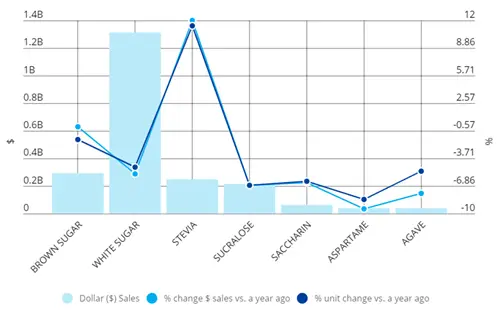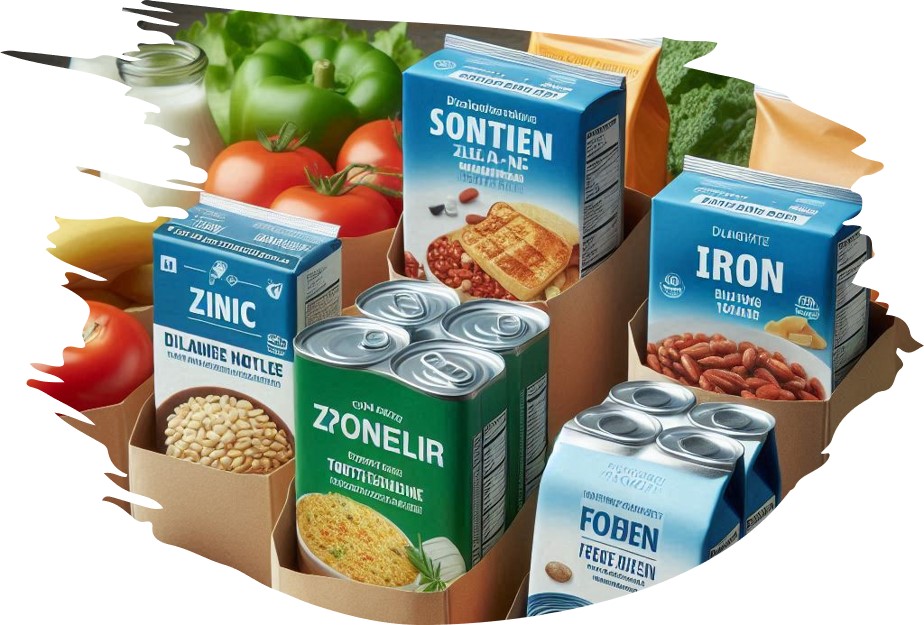Zero-Calorie Stevia Sweetener Making Consumers' Cakes, Drinks, and Ice-creams Toothsome To Replace Sugar
Stevia sweetener is replacing cane and artificial sugars not only in the United States but all over the world. The internet and social media are playing their roles in adding to the popularity of Stevia sweetener as well as other natural ones.
Sugar is believed to cause obesity, cardiovascular diseases, and Type 2 diabetes. Every health-conscious customer wants to enjoy his sweet cake while avoiding the effects of sugar on his health.
Companies like Coca-Cola, PepsiCo, and others know the demand of their customers. They have been using stevia to claim rightly that their products are 100% sugar-free. They are attracting a vast market of customers facing diabetes problems or fearing the same.
To meet the demand for Stevia sweetener, the farmers are shifting to Stevia growing all around the world. They can reap stevia crop four times a year and continue to do so for the coming four to five years too. They are learning to develop new crop cultivation methods as they can sell stevia for profits only if their product is organic. The companies are aware of the harms that chemical residuals of pesticides can do the end-users.
What is Stevia Sweetener?

Stevia sweetener is derived from the leaves of a plant Stevia Rebaudiana. There are more than 200 varieties of stevia and a few contain active compound “steviol glycosides” in their leaves. However, Stevia Rebaudiana is considered the best as 300 times sweeter than sugar. Our livers don’t metabolize this compound. The stevia sweetener is neither digested in our tract nor taken to our bloodstream. Thus stevia sweetner is excreted through our urine, without adding any calories to our bodies.
Guarani tribe in South America claim to use the plant for the last 1500 years. However, people from Brazil and Paraguay have also been using the wild stevia in their teas and medicine for centuries. Now many other countries like Japan, India
However, the United States had not allowed the companies to use Stevia sweetener by 2008. The European Union recognized stevia as a valid food additive in 2011. The World Health Organization (WHO) has also verified that stevia sweetener is safe for human health. Stevia glycosides are certified to be safe for human consumption in the United States.
United States Department of Agriculture (USDA) while giving details of stevia sweetener being supplied by Wal-Mart Stores, Inc., mentioned the following ingredients for packs of 2 g and value per 100 g.
| Source: USDA Branded Food Products Database Release July 2018 Software v.3.9.5.3_2019-06-13 | |||
|---|---|---|---|
| Report Run at: September 24 2019 02:54 EDT | |||
| Nutrient data for: STEVIA, UPC: 078742064598 | |||
| Food Group: Branded Food Products Database | |||
| Common Name: | |||
| Nutrient | Unit | 1 PACK = 2.0g | 1Value per 100 g |
| Proximates | |||
| Energy | kcal | 0 | 0 |
| Protein | g | 0 | 0 |
| Total lipid (fat) | g | 0 | 0 |
| Carbohydrate, by difference | g | 2 | 100 |
| Fiber, total dietary | g | 0 | 0 |
| Sugars, total | g | 0 | 0 |
| Minerals | |||
| Calcium, Ca | mg | 0 | 0 |
| Iron, Fe | mg | 0 | 0 |
| Potassium, K | mg | 0 | 0 |
| Sodium, Na | mg | 0 | 0 |
| Vitamins | |||
| Vitamin C, total ascorbic acid | mg | 0 | 0 |
| Vitamin A, IU | IU | 0 | 0 |
| Lipids | |||
| Fatty acids, total saturated | g | 0 | 0 |
| Fatty acids, total monounsaturated | g | 0 | 0 |
| Fatty acids, total polyunsaturated | g | 0 | 0 |
| Fatty acids, total trans | g | 0 | 0 |
| Cholesterol | mg | 0 | 0 |
| Amino Acids | |||
| Other | |||
| Ingredients | |||
| ERYTHRITOL, REBIANA, NATURAL FLAVORS. Date available: 03/11/2018 Date last updated by company: 03/11/2018 |
This table shows that raw stevia sweetener has zero calories. However, the companies have been adding fibers and carbohydrates to make it acceptable to the taste. The natural stevia leaves powder gives a bitter taste after use.
The increasing popularity of Stevia Sweetener in USA
In 2018, the prominent research firm Nielsen reported that shoppers are shifting towards stevia fast and there is an increase of 11.9% in stevia sales while a decrease not only in the sales of cane sugar but also the artificial ones. Nielsen draws this graph:

Neilsen states, “sales of products that claim to contain stevia are up 17% during the week ended Aug. 31, 2018, compared to a year ago, and on an annual basis, growth is up an impressive 16% year-over-year. Sales of stevia as a product on its own are also up 11% for the same week.
Neilsen further reports:
“But, according to data from Nielsen Product Insider, it’s products like ice cream, chocolate and fruit drinks that are embracing stevia, and consumers are happy to join in. In fact, stevia’s success is even making its way into the health and beauty care aisles, as categories such as toothpaste (+72%) and supplements (+27%) are posting significant growth for products containing the sweetener.”
By: Saqib Ali Ateel
Stevia Leads to Metabolic Syndrome
- Home
- Stevia
What are iron fortified foods?
What is your story of using Stevia sweetener?
Stevia is a natural, zero-calorie popular sweetener. You may disagree what is written above. It is comparatively a new switch from sugar. You are welcome with your point of view, your personal story of using it or even new research which refutes or alleviates moringa benefits. You are requested to share it with our visitors.
What's New?
-
What are iron fortified foods?
Iron fortified foods contain additional iron to help prevent deficiencies and support overall health, particularly in children and pregnant women. -
What are fortified foods?
What are fortified foods? How are they different from staple and common everyday foods? -
Baby Organic Food: “To be, or not to be, that is the question”
Baby organic food is free from insecticides, weedicides and residues of synthetic fertilizers thus much safer for babies

DOWNLOAD!



